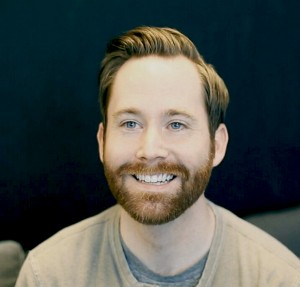

At the center Dan shoots and edits video, does graphic design, event organization, and more. Right now, Dan is working on the development of a new resource called Heart-Mind Online. This is a website for parents and educators who are looking for that heart-mind balance for the children in their care. They plan to launch the site with the Dalai Lama when he comes to town this month.
What other positions have you held since graduating from j-school?
For more than three years, I also worked as an associate producer at CityTV Vancouver. Again, I got to do a little of everything there. It was a mixture of news gathering and news writing. Some days I’d be working at the news and assignment desk, monitoring the scanners, trawling Twitter for story ideas and sending out cameras and reporters, and other days I’d be writing the scripts for the show. It was great to be able to have that bit of variety in the work day.
How did your j-school experience help you transition into a career in journalism?
In both the work I do now at the Dalai Lama center, and the work I did at CityTV, the constant element has been versatility. The idea behind multi-platform journalism — the reporter who shoots, edits, writes copy and uploads it all to the web — applies to a lot of creative jobs. I think whether you want to remain in journalism or branch out into other fields, having that “multi-platform” approach can serve any graduate well.
Of the lessons you learned at UBC, which one has proven to be the most valuable?
For our IRP project, Peter asked me to track down the phone number of some expert in the U.S. that we needed to interview. All I had was his name and his last place of employment. I did a Google search and couldn’t find anything. I ended up spending around six hours doing what I assumed was CSI-level cross-referencing trying to find the cousin of his neighbour’s baker — anyone who could get me this man’s phone number. After giving up, I sent Peter a email, throwing in the towel and basically saying ‘This guy is not meant to be found.’ Peter then walked in with the expert’s phone number and said, “It was in the phone book.” It was an embarrassing lesson not to overthink simple tasks, and one that I try to remember.
What’s been the piece of journalism you’ve produced of which you’re most proud?
Without a doubt, the work we did covering the electronic waste trade is the most rewarding piece of journalism I’ve been a part of. Getting to work with a team of fellow student journalists and our faculty, getting to travel across the globe, and getting to dig into a really important story. It was the kind of collaborative work that I think all young journalists would appreciate and learn from. It was really incredible to see the conversations that arose after the piece aired. Frontline’s website was flooded with comments from people who legitimately had no idea that when they took their computer to a recycling depot that there was a pretty good chance it would end up in similar dump sites to the ones we visited. It encouraged people to ask questions, both about how they themselves handled their old electronics, and also about the people and institutions who created this problem. A couple years later, a group of students at SFU approached the school to see if we could help them with their goal to make their university a “zero e-waste” institution. So it was great to see the ripple effects.
Would you recommend the j-school to aspiring journalists?
UBC’s j-school is great for anyone who wants to get hands-on experience in a wide range of media while at the same time getting a chance to continue their education in a particular academic field. The small class sizes really helped. Our year was a tight-knit group and we worked really well together when it came time to collaborate. The small class sizes also meant that there was lots of time to pick the brains of the faculty and advisors.


